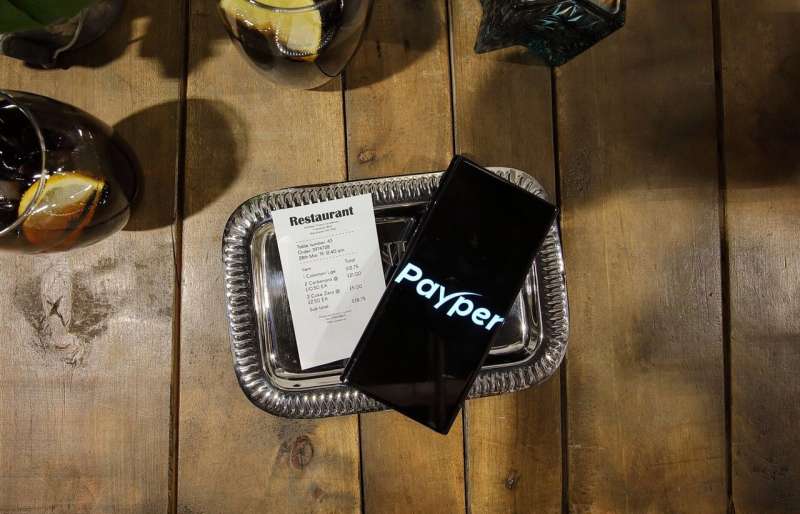Beyond chip-and-PIN: Graphene's quick, hygienic solution to restaurant payment

A new graphene-based contactless payment system, developed in collaboration with the University of Manchester, has begun a restaurant pilot that could pave the way for the end of chip-and-PIN, cutting customer wait-time and reducing the risk of infectious transmission.
Payper allows the customer to tap their phone on a smart till receipt that features a printed electronic antenna. The smartphone reads data from the antenna, triggering the bill, which is shown via the customer's default browser. Android or Apple Pay checkout is then completed with two clicks, in less than five seconds with no app required.
Strength and flexibility
The role of graphene in the antenna is to provide high flexibility, conductivity and mechanical strength, which can be imparted onto the tight and variable curvature of the till roll.
The project is led by Manchester start-up Payper Technologies, co-founded by Dr. Thanasis Georgiou and Renate Kalnina (pictured right). Thanasis said: "Payper's antennas combines graphene with metals and other components to realize a near-field communication device that can used as a direct swap for existing restaurant till rolls. By introducing just a small amount of graphene in the manufacturing process, we can translate its unique range of benefits into our 'smart' receipt rolls."
Lowry trial
The team has begun a live trial of the system at the River Restaurant of The Lowry Hotel in Salford.
"We are delighted to be the flagship hotel in the UK trialing this new enhanced safety payment method to our customers," said Adrian Ellis, General Manager at The Lowry Hotel.
"The University of Manchester first isolated graphene, so it really is a privilege to be using a product that not only makes the customer journey safer and more convenient, but is also supportive of the city in which the product was founded."
Thanasis added: "The trial will be used to demonstrate the technology and provide validation of this pay-at-table solution, along with potentially demonstrating other benefits for restaurants, including increasing customer lifetime value, repeat visits and tips, and reducing table-turn time".
Bridging the gap
Concurrent with the Lowry Hotel trial, the team is conducting further research and development on the system at the University's Graphene Engineering Innovation Center, supported by the European Regional Development Fund (ERDF) "Bridging the Gap" program. This will include moves towards an all-graphene system, removing the metal components to make the product more sustainable and recyclable.
James Baker, CEO of Graphene@Manchester said: "This is a great example of how we can help industry partners—including local SMEs—to accelerate graphene products towards the marketplace and deliver real-world benefits. Payper isn't just about convenience. "The card machine is the one thing that all the waiting staff and at least one person from every table will touch over the course of a shift in a restaurant. If you can reduce those touchpoints with a truly contactless system, you have an elegant solution to reducing the risk of COVID transmission."
More information: More information about Payper: payper.uk/
Provided by University of Manchester




















